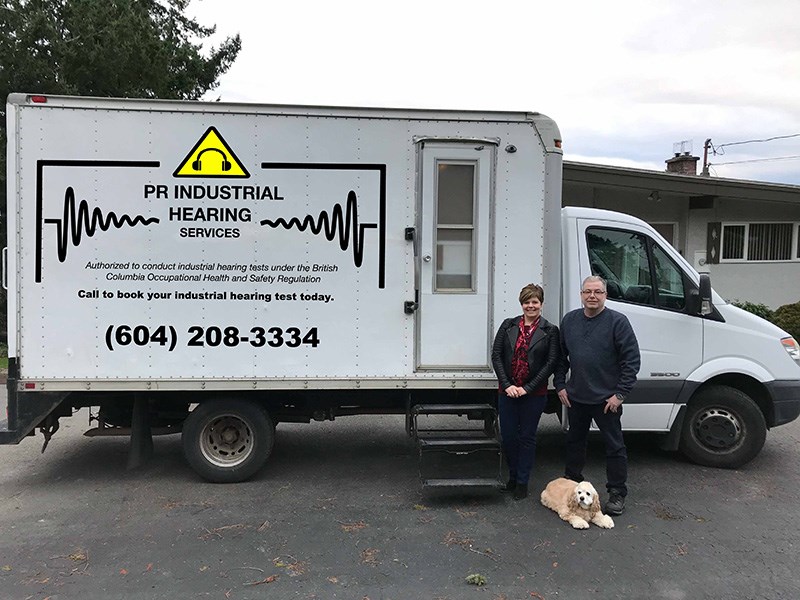Powell River Hearing, known for helping local residents improve their hearing with rehabilitation services, is expanding to make it easier for local employers to protect their workers’ hearing.
PR Industrial Hearing Services, a division of Powell River Hearing, will offer a mobile on-site hearing testing facility that will serve Powell River and the Sunshine Coast, says Shannon Miller, owner of Powell River Hearing.
The company’s new locally-based mobile workplace testing unit will simplify the process for local employers to meet provincial occupational and safety regulations.
“PR Industrial Hearing will make it easier for employers in Powell River and on the Sunshine Coast to access hearing testing services on-site, saving companies time and money,” explains Shannon. “If you have a business that employs workers and your industry requires that you have a hearing conservation program, then we would like to help you with your annual hearing testing.”
Shannon, who is a registered hearing instrument practitioner, has partnered with Jerald Formby, an authorized industrial audiometric technician, to operate this new locally-based business.
“While I continue to assist my clients who are already living with hearing loss and help them with testing and hearing aids, Jerald’s focus will be on hearing-loss prevention,” says Shannon. “Jerald received his training at BCIT and has been authorized by WorkSafeBC to provide industrial audiometric services to businesses so they can comply with noise exposure health and safety regulations.”
PR Industrial Hearing Services’ mobile testing facility is equipped with a sound-isolation booth and hearing testing equipment to conduct threshold-based hearing tests, she says.
The mobile facility will provide samples of approved hearing protection devices, education and recommendations on hearing loss prevention so workers and employers make better, informed decisions, she adds.
Employers whose worksites expose their employees to noise levels above WorkSafeBC’s prescribed noise levels, as described in provincial occupational health and safety regulations, are required to provide their employees with regular hearing tests as part of an employer hearing conservation program.
“Relying on out-of-town industrial mobile testing facilities is not the most efficient, nor a consistent way to maintain an effective hearing conservation program,” says Shannon. “Noise-induced hearing loss is often gradual and many do not realize its negative effects until it’s too late.”
A hearing conservation program that consistently provides workers with annual testing and counselling regarding hearing protection devices is an essential part of the program, she adds.
Well-run hearing conservation programs provide workers with annual hearing tests, regular worksite-noise assessments and inspections, a range of hearing-protection equipment available for employees, training and education on minimizing noise hazards, record keeping and program evaluation, says Shannon.
Workplace noise regulations apply for all worksites, not just industrial or building trades ones, she adds.
“They are not limited to protecting construction workers," explains Shannon, “but apply to any workplace that exposes workers to hazardous levels of noise.”
Even students who are learning the construction trades should receive regular hearing testing and have the results submitted to WorkSafeBC, she adds.
Anyone interested in having PR Industrial Hearing provide their annual hearing testing with the company’s mobile facility can contact Jerald by phone at 604.208.3334.
“Employers will need to have their WorkSafeBC firm number and classification unit number on hand,” says Shannon, “and Jerald will schedule your workers’ annual hearing test when it is due.”



